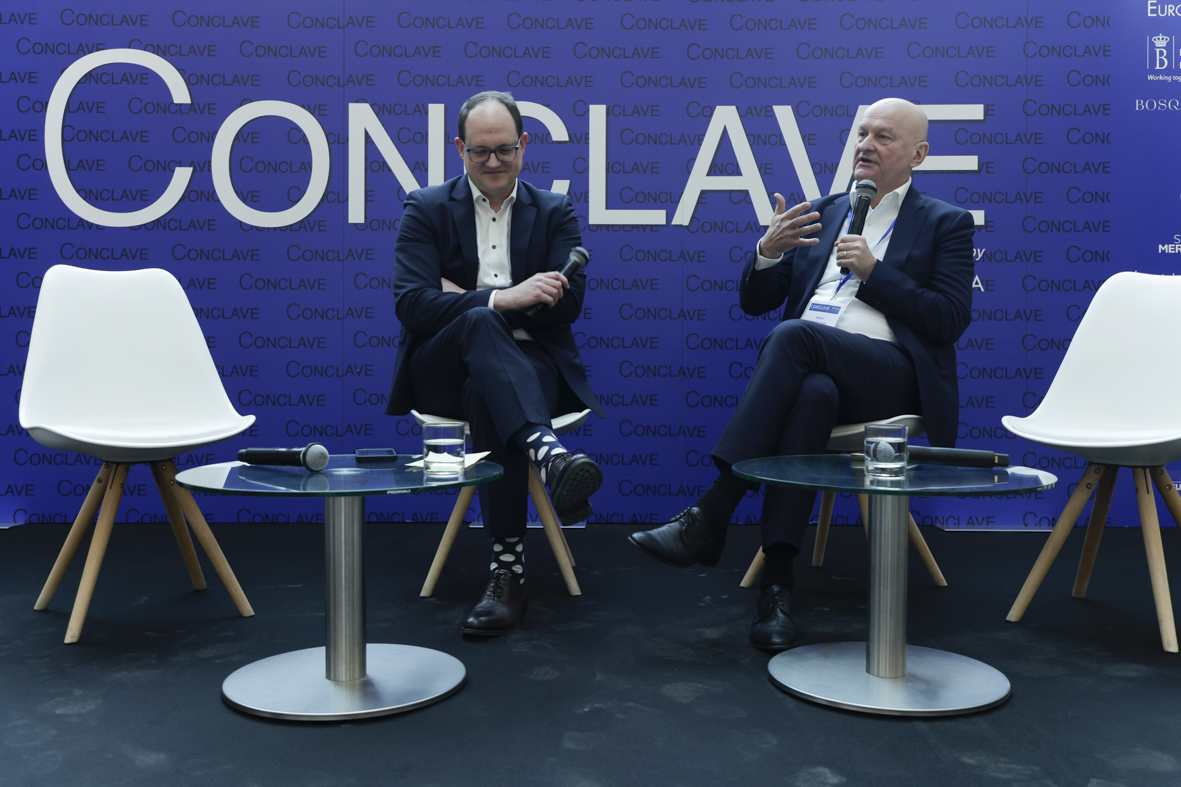- The "Future 500" project, part of the "SEEUS Futures" platform developed by the Atlantic Council, was officially presented during the second European conclave’s International Public Conference – "What relations should we envisage with Europe by 2040?" at the BELvue Museum in Brussels.
- The "Future 500" project was announced by Jörn Fleck, Senior Director at the Atlantic Council, and Stjepan Orešković, founder and majority shareholder of BOSQAR d.d.
- The project's goal is to harness entrepreneurial talent to strengthen the role of the next generation of entrepreneurs in the European Union and global markets.

Brussels, Belgium, January 20, 2025 – This weekend, the Atlantic Council officially unveiled the "Future 500" initiative during the second annual European conclave, "Conclave II: International Public Conference" – themed “What relations should we envisage with Europe by 2040?” at the BELvue Museum in Brussels.
The "Future 500" initiative is part of the broader "SEEUS Futures" platform, designed to harness entrepreneurial talent and strengthen the role of Europe’s emerging entrepreneurs in global markets. The project was co-presented by Jörn Fleck, Senior Director at the Atlantic Council, and Stjepan Orešković, founder and majority shareholder of BOSQAR d.d., as a response to Europe’s pressing need for innovation-driven leadership.
The "Future 500" Initiative: Revitalizing Europe's Competitiveness
Inspired by former ECB President Mario Draghi's strategic insights on the future of Europe’s competitiveness, "Future 500" addresses the need for systemic and financial support to create global leaders from Europe.
"'Future 500' is an initiative aimed at unleashing Europe’s entrepreneurial and scientific potential and empowering the next generation of innovators to enhance regional and European competitiveness," said Orešković.
"By fostering cross-border collaboration, scaling high-potential businesses, and attracting international investment, 'Future 500' seeks to shape a new economic environment where entrepreneurs and entrepreneur-scientists are pivotal to revitalizing the EU’s global position. This project will provide the resources, networks, and support necessary to ensure their success on the world stage," he noted.
With only four of the world’s 50 largest tech companies originating in Europe, the initiative emphasizes scaling businesses with growth potential, creating a robust support ecosystem, and driving cross-border innovation and transatlantic partnerships.

Empowering Europe’s Next Generation of Entrepreneurs
The initiative's mission is to empower a new generation of entrepreneurs by providing them with the resources, networks, and support needed to thrive on the global stage.
Through this, the project aims to:
- Drive regional growth and integration in Southeast Europe and the European Union.
- Enhance global competitiveness of European companies.
- Foster innovation through transdisciplinary and cross-sector collaboration.
After its presentation in Brussels, the "Future 500" initiative will debut in Washington, D.C., this May to engage the U.S. business, scientific, and political communities. It will officially launch at the Bled Strategic Forum (BSF) in Slovenia this September, showcasing innovative companies and technologies with global potential.

A Gathering of Global Leaders and Experts
The Brussels conclave featured over 50 leading figures from politics, business, arts, science, and civil society, including Antonio Costa (President of the European Council), Mark Rutte (NATO Secretary General), and Alexander De Croo (Prime Minister of Belgium).
Other distinguished participants included Mariya Gabriel (former Bulgarian Deputy Prime Minister), Jean-François van Boxmeer (Chairman of Vodafone), and representatives from BOSQAR INVEST, the Bertelsmann Foundation, and ASML.









